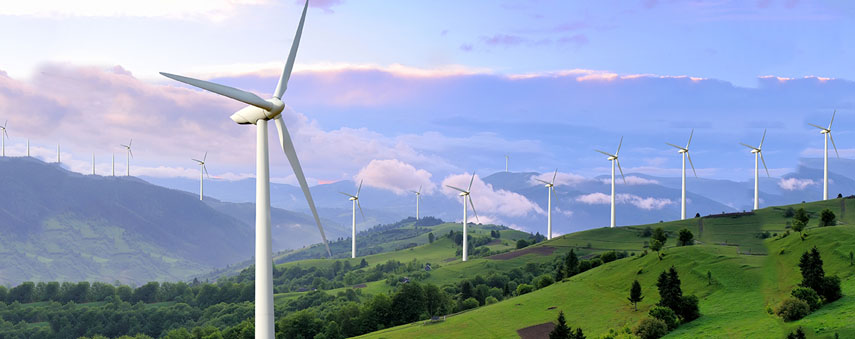Will technology save humanity from climate change?

Credit: Cisco
Climate change is reaching a critical state. Will artificial intelligence save us all from impending doom or is it actually exacerbating the problem?
The country came to a standstill on the day that Boris Johnson was announced at the next Prime Minister of the UK. However, the chaos in Britain last week was caused by the weather rather than political change; last Thursday marked only the second time in recorded history that the UK registered temperatures over 100F.
It’s been a volatile summer. Scorching sun has interrupted thick, heavy rain; thunderstorms rumbled across the UK last week and it looks like a second heatwave is set to blaze through the South before autumn. Pleasant weather is nice when it lasts but it comes with concerns. It seems like every year, European countries break their record for hot weather. Climate change is becoming harder and harder to deny.
Environmental doom has long been scheduled for the 2020s. Though as the weather heats up, so does innovation. Artificial intelligence is making huge strides to revolutionise everyday tech, as well as on the horizon. IoT too has the potential to make technology cheaper and more efficient; the advent of these new technologies are changing industry and revealing insights on data that human beings would never have been able to find alone.
Surely AI can help in the fight against climate change? Or is that too much of a utopian vision? Do we really have to sacrifice economic and therefore technological growth for the good of the planet? Or can technological growth be good for the planet?
How could technology be used in the fight against climate change?
Billionaires like Elon Musk and Bill Gates talk about the environment a lot. Some believe they genuinely care. Sceptics believe it’s bluster in order to get us to buy products.
It’s undeniable however that Musk’s Teslas have revolutionised the way that people think about EV cars, whilst the Boring Company – a somewhat tongue-in-cheek venture that launched flamethrowers – was founded with the aim of cutting down street-level traffic and pollution with it.
It’s certainly good business to look like you’re bothered about climate change. Gates, however, has been put his money where his mouth is: the Microsoft founder has invested in a carbon capture plant that does the work of 40 million trees, taking carbon dioxide from the atmosphere and synthesising it into cleaner fuels. Direct Air Capture technology can deliver negative emissions on a huge scale by removing CO2 directly from the atmosphere and this is just one example of several startups that Gates has invested billions into.
Sucking the CO2 out of the air with a giant machine is one of the less outlandish ideas that experts have for reducing the heat of the earth. It’s been theorised for decades that building a weather machine could reflect the sun’s rays back into space, but IoT and AI make such a hazy idea much clearer to build in reality.
J. Storrs Hall, the author of Nanofuture: What’s Next for Nanotechnology, has talked in depth about building a thin global cloud of tiny, transparent balloons that could shade or reflect the sunlight from the stratosphere. Each balloon would contain a GPS, a computer and a mirror. In theory, this cloud of balloons could be programmed to limit the amount of sun that the planet receives.
A programmable greenhouse gas could be the most important invention in the history of Earth, though it comes with its downsides. Who would control such a machine and what would stop them from using it for evil? The power to alter the weather for any nation on the planet is perhaps not one that human beings should be endowed with.
For all the great work that Bill Gates and Elon Musk may be doing too, it’s easy to argue that it’s only their responsibilities’ worth.
Distant future and elaborate tech aside, AI is helping scientists to chart climate change a lot more accurately than they used to. Artificial intelligence requires huge amounts of data and with more data being collected than ever before on emissions, temperatures and even animals and plants, we can find precise records and chart the meteorological changes.
There is constant research being conducted on deforestation and afforestation. It might not be the most high-tech solution, but planting more trees and keeping an eye on forest populations would significantly improve the health of the planet. AI is helping to monitor this situation.
Could tech be bad for the environment?
Despite all the good work that AI is helping to do, it does not run on steam. Training AI is energy intensive and it’s predicted that the carbon footprint of training a single AI could be around five times the lifetime emissions of an average car.
For all the great work that Bill Gates and Elon Musk may be doing too, it’s easy to argue that it’s only their responsibilities’ worth. These billionaires are unlikely to have contributed more to the planet than they have taken, so to speak.
We are still in the early stages of artificial intelligence and waste is still high. Servers still require a lot of energy. Technology is not making net benefits to the environment yet, despite positive signs.
The next few years are critical for the environment. Some scientists predict that we have already crossed the point of no return; others fear that such a day has not passed just yet but will in the future.
However humanity is going to fight climate change, it will require such a colossal effort from science and technology, that it’s difficult to imagine AI, IoT and other emergent tech not playing its part.
